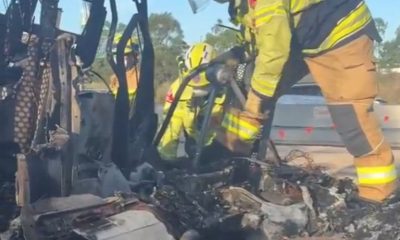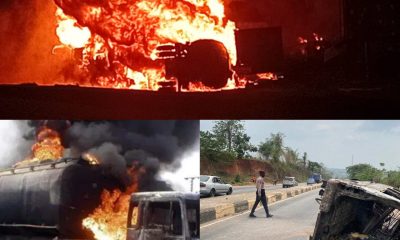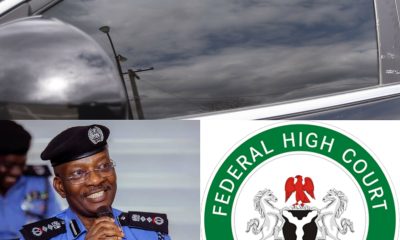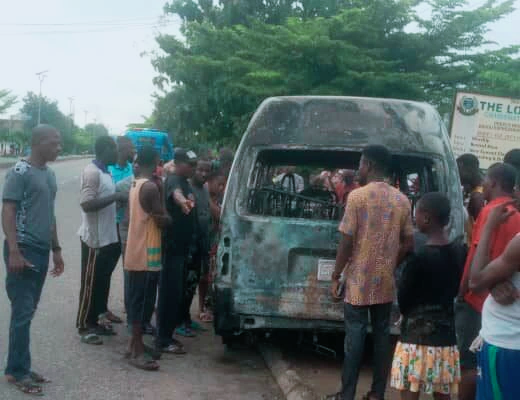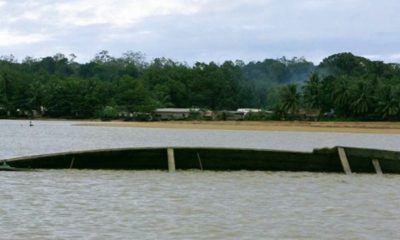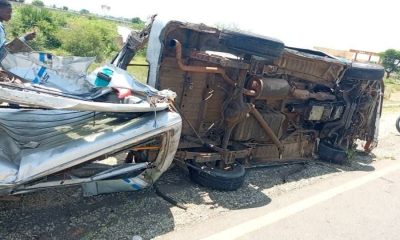News Update
PENGASSAN Strike Shuts Down Dangote Refinery Operations, Risks Nationwide Fuel Scarcity

A Brewing Storm on Nigeria’s Highways
Nigeria’s roads may soon bear the brunt of a crisis that began in corporate boardrooms but now threatens to spill onto highways and motor parks across the country.
The Petroleum and Natural Gas Senior Staff Association of Nigeria(PENGASSAN) has declared a nationwide strike in response to the dismissal of over 800 staff members by the Dangote Oil Refinery, Africa’s biggest single-train refinery.
What may look like an internal labor dispute is, in reality, a transportation time bomb: the strike risks disrupting crude and petroleum product supplies, crippling tanker operations, worsening traffic snarls around depots, and ultimately destabilizing road safety nationwide.
The Flashpoint: 800 Jobs Lost, A Union Silenced
In early September, news broke that Dangote Refinery had sacked 800 workers, many of whom were allegedly involved in union activities. Management justified the layoffs as part of “organizational restructuring,” insisting that some of those dismissed had engaged in acts of sabotage against refinery operations.
But PENGASSAN, one of Nigeria’s most powerful unions, disagreed. The union accused Dangote Refinery of attempting to silence workers’ rights to unionize and vowed to resist what it described as a dangerous precedent for labor rights in Nigeria’s oil sector.
Strike Begins: A Shutdown That Spreads Beyond Dangote
On Monday, PENGASSAN escalated matters with a nationwide strike, crippling petroleum regulatory and operational bodies such as:
- Nigerian National Petroleum Company Limited (NNPC Ltd.)
- Nigerian Midstream and Downstream Petroleum Regulatory Authority (NMDPRA)
- Nigerian Upstream Petroleum Regulatory Commission (NUPRC)
This unprecedented action signals the seriousness of the union’s stance. For ordinary Nigerians, however, the consequences are not abstract, they will play out directly on the roads.
Roads at Risk: Tanker Operations and Traffic Fallout
Nigeria’s roads are the arteries through which fuel moves. Each day, hundreds of tankers ply major highways, Lagos-Ibadan Expressway, East-West Road, Abuja-Lokoja Road, Benin-Sapele Road, delivering petrol, diesel, and kerosene.
The strike raises several immediate threats:
- Fuel Scarcity Panic – With supplies disrupted, long queues will form at petrol stations, forcing tankers to idle longer on highways and depots, creating congestion.
- Unsafe Parking & Roadblocks – Tankers stranded without clearance to load could resort to unsafe roadside parking, heightening accident risks.
- Increased Black Market Sales – Shortages may drive motorists to unsafe, adulterated fuel sources, leading to vehicle breakdowns and potential road fires.
- Driver Fatigue & Risks – Extended waiting times at depots and checkpoints will worsen driver fatigue, a leading cause of tanker crashes.
Dangote’s Countermove: A Court Injunction
In a dramatic twist, the Dangote Group secured a Federal High Court injunction barring PENGASSAN from obstructing crude and gas supplies. The court order mandates that “crude oil, gas supply, and product distribution must not be tampered with.”
Yet, PENGASSAN insists it has not been formally served and continues the strike undeterred. The standoff raises the specter of a legal vs. industrial deadlock, with tanker drivers caught in the middle.
Historical Context: Strikes and Nigeria’s Roads
This is not the first time labor disputes have hit Nigerian roads.
- 2012 Fuel Subsidy Protests: Nationwide road blockades paralyzed transport for over a week.
- 2016 NUPENG Strike: Tankers deserted depots, creating mile-long fuel queues and secondary crashes.
- 2020 COVID-19 Lockdowns: Similar disruptions highlighted how quickly road safety deteriorates when fuel supply chains are stressed.
Each of these episodes ended with the same lesson: when Nigeria’s oil sector sneezes, the roads catch pneumonia.
Human Angle: Voices from the Highways
RoadKing.ng reached out to tanker drivers, union reps, and commuters:
- Musa Ibrahim, a tanker driver in Apapa:
“We’ve been on the road for two days waiting to load. If the strike continues, I may have to park on the express. That’s when accidents happen.” - Ngozi Eze, commuter, Benin-Lagos road:
“Last time there was a strike, tankers blocked the express. I spent 7 hours in traffic. This thing affects us ordinary Nigerians more than the big men fighting.” - FRSC Officer (anonymous):
“Every strike increases our workload. Tankers park recklessly, motorists panic-buy, and the risk of accidents doubles. We are preparing for the worst.”
Safety Experts Weigh In
Road safety analysts warn that beyond scarcity and price hikes, lives are at risk.
Dr. Sola Olayemi, transport economist, told RoadKing.ng:
“Nigeria’s over-reliance on road transport for fuel distribution means strikes like this automatically escalate into safety crises. Until pipelines and rail are revived, every labor dispute will claim lives on our roads.”
Government Response
So far, the Federal Government has appealed for calm, urging Dangote and PENGASSAN to return to negotiations. Officials fear that prolonged strike action could:
- Spike fuel prices to over ₦1,200 per litre.
- Stall critical sectors such as aviation, transport, and manufacturing.
- Spark public unrest similar to the 2012 subsidy protests.
But commuters remain skeptical, noting that government mediation often comes too late.
Possible Way Forward
Experts suggest three immediate solutions:
- Mediation Panel – Neutral arbitrators (Ministry of Labour + Industry reps) must convene within 48 hours.
- Temporary Suspension of Strike – Pending negotiation, PENGASSAN could suspend the strike to avoid catastrophic fuel shortages.
- Driver Welfare Guarantees – Government must seize this moment to address tanker drivers’ welfare, parking bays, and road safety policies.
Conclusion: A National Crossroads
What began as a labor union protest is quickly becoming a road safety emergency. If unresolved, Nigerians may soon face empty petrol stations, stranded tankers on highways, traffic chaos, and increased accidents.
For commuters, drivers, and families who rely on safe highways daily, the message is clear: industrial disputes in the oil sector are not just about workers and employers, they are about life and death on Nigeria’s roads.
News Update
17 Passengers Freed After 12 Days in Calabar–Oron Waterway Kidnap Horror

It was supposed to be an ordinary boat ride across the calm waters of the Calabar–Oron route, a journey many Nigerians take daily to avoid the pothole-ridden East–West Road. But by the end of that trip, 17 passengers disappeared, seized by pirates who turned a public waterway into a nightmare corridor of fear.
Also Read: Signs of Flooded Cars: How to Identify Water Damage
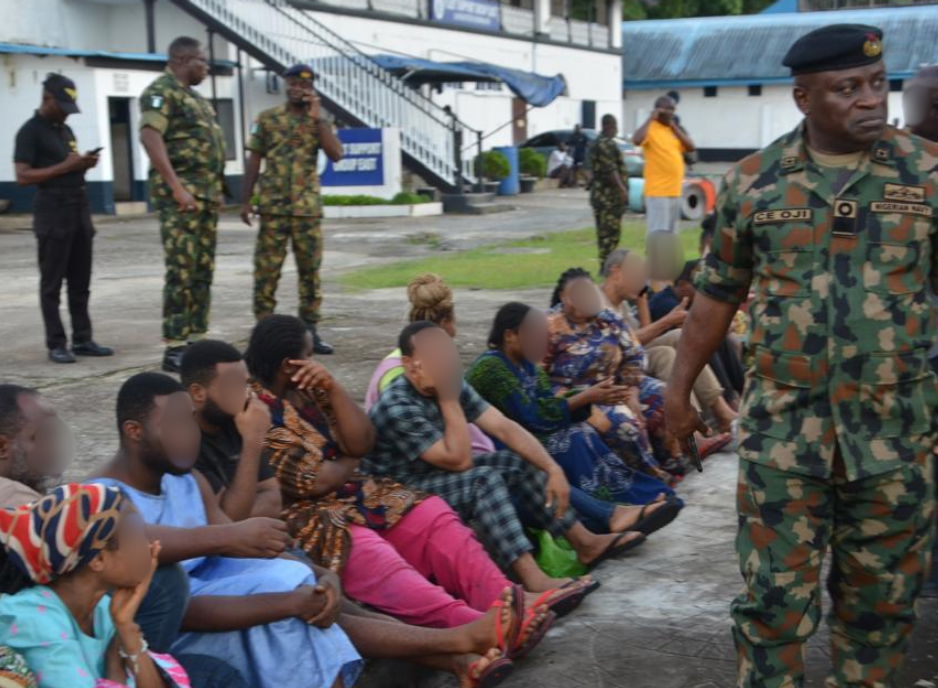
For twelve long days, families waited in silence. Phones rang unanswered. The sea swallowed voices and hope alike.
The Attack That Stunned the South-South
According to eyewitnesses, the Sea Express commercial boat left the Calabar terminal around noon. Halfway into the trip, near the creeks of Akpabuyo, armed men on two speedboats intercepted them.
“They fired in the air, shouting for everyone to lie down,” recalled a survivor still too shaken to be named. “They forced us into another boat and sped into the mangroves.”
From that moment, seventeen lives vanished into the maze of Cross River’s creeks, held hostage by pirates reportedly demanding huge ransoms from families.
The Silent Hunt for the Missing
Behind the scenes, the Nigerian Navy, backed by the Department of State Services (DSS) and local vigilantes, began a painstaking manhunt.
A senior officer from NNS Victory, Calabar, who spoke under anonymity, confirmed that naval patrols combed over 30 nautical miles of swamp and waterway terrain, cutting off food and fuel supplies to the kidnappers’ camps.
“The pirates were cornered. With no way out, they had to surrender the hostages,” the officer said.
Late Monday evening, October 6, 2025, the Navy announced the successful rescue of all 17 passengers, alive and without ransom payment. They were transported to the Naval Reference Hospital, Calabar, for medical and psychological evaluation.
Families Who Waited And Prayed
For relatives of the victims, it was nearly two weeks of sleepless nights.
One mother, Mrs. Alice Etim, whose son was among those abducted, told RoadKing.ng:
“Every day, I sat by the waterside, hoping to see the boat return. I didn’t sleep. When they said the Navy rescued them, I collapsed crying.”
Many of the rescued are artisans, traders, and students who depend on water transport because of the poor condition of the East–West Road, which connects Akwa Ibom, Rivers, and Cross River States.
When Land Fails, Water Becomes the Only Road
The Calabar-Oron waterway has become the South-South’s alternative highway, faster, cheaper, but increasingly unsafe.
With the East–West Road now almost impassable due to flooding, erosion, and neglect, thousands rely on ferries daily.
But security experts warn: “When government abandons roads, criminals take over rivers.”
Since January 2025, RoadKing.ng records show over 12 reported attacks on boats across Cross River and Akwa Ibom waters, many involving ransom abductions.
What the Navy and Government Are Saying
The Commander of NNS Victory, Commodore James Odili, confirmed that joint intelligence and local cooperation made the rescue possible.
“We did not storm their camp blindly. We used intelligence and surveillance. The abductors were forced to free the passengers because they had nowhere to run.”
The Cross River State Government has called for permanent naval presence across major jetties and pledged to invest in secure docking terminals for safer passenger loading.
But transport analysts argue that unless the federal government fixes the roads, Nigerians will keep risking their lives on dangerous waterways.
RoadKing.ng Investigation Insight
- Neglected road infrastructure drives Nigerians to unsafe transport alternatives.
- Waterway security patrols remain grossly inadequate, often only one naval craft per zone.
- Boat operators lack proper passenger manifests and safety protocols.
- Absence of coastal surveillance radar leaves Nigeria’s inland waterways exposed.
Until these issues are addressed, both roads and rivers will remain death corridors for the common traveler.
The RoadKing Verdict
The rescue is commendable. But it shouldn’t take 12 days, 17 families, and national panic to remind the government that transportation safety isn’t about building roads, it’s about protecting people who use them.
News Update
Lagos Launches Citywide Transport Perception Survey to Revolutionize Mobility Planning
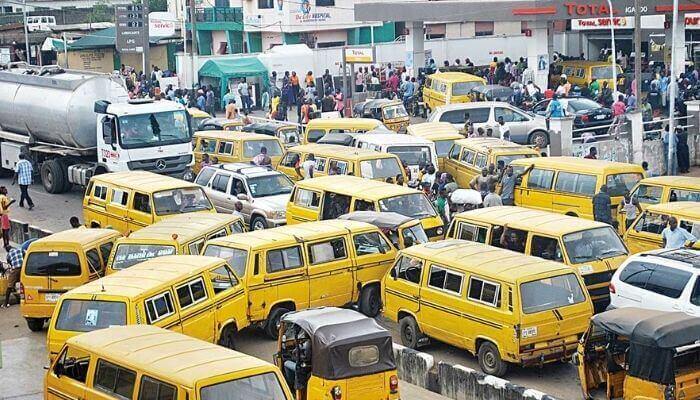
In a bold move to reshape the state’s transport future, the Lagos State Government has launched a comprehensive citywide transport perception survey, targeting public feedback across road, rail, and water transport systems.
Also Read: PENGASSAN Strike Shuts Down Dangote Refinery Operations, Risks Nationwide Fuel Scarcity
The initiative, announced by the Lagos Metropolitan Area Transport Authority (LAMATA) on Tuesday, seeks to bridge the gap between policy planning and the lived experiences of commuters.
According to LAMATA’s Managing Director, Engr. Abimbola Akinajo, the survey is part of the state’s broader mobility reform strategy aimed at understanding how residents perceive existing transport infrastructure, services, and safety. “Our goal is to make Lagos a model for efficient, inclusive, and sustainable mobility in Africa. We can only achieve this if we listen to the people who use these systems every day,” she said.
How the Survey Works
The transport perception survey will collect data from road users across all 20 Local Government Areas, focusing on:
- Commuter satisfaction levels on major routes and transport modes.
- Travel time and safety experiences across BRT corridors, ferry terminals, and railway stations.
- Accessibility issues faced by people with disabilities and low-income groups.
- Perceptions of enforcement, driver behavior, and fare fairness.
Participants can complete the survey through LAMATA’s online portal or physical questionnaires distributed at key transit points including Oshodi, Mile 2, Marina, and Ojota.
A Step Toward Smarter Transport Governance
Lagos currently accounts for over 40% of Nigeria’s vehicle traffic, with more than 6 million daily trips by road alone. The state’s growing congestion problem has made strategic transport planning a necessity. Experts say the perception survey will provide real-time insights into the impact of ongoing infrastructure projects like the Blue Line Rail, Red Line Rail, and the Lekki-Epe Expressway expansion.
According to urban mobility analyst Tunde Adeyemi, “The survey is not just about complaints, it’s data-driven governance. For too long, transport planning in Nigeria has been top-down. This initiative flips the model to bottom-up, ensuring the real challenges of drivers and passengers inform future decisions.”
Public Reaction
Many commuters welcomed the move, saying it’s long overdue. A commercial driver along Ikorodu Road, Sunday Ajayi, told RoadKing.ng, “If they want to fix transport, they should listen to us who spend all day on the road. The bad traffic, potholes, and touts are our reality. If this survey is real, it’s a good thing.”
However, others expressed skepticism about implementation. “We have filled forms like this before, but nothing changes. We need action, not data,” said Ngozi Eze, a daily commuter from Surulere to CMS.
Government’s Next Steps
LAMATA confirmed that all findings from the survey will be publicly shared in the 2025 Lagos Transport Report, expected to guide future budget allocations for road repairs, mass transit expansion, and safety enforcement. The government says the report will also influence the Lagos Mobility Master Plan, aligning with the United Nations Sustainable Development Goal 11 (Sustainable Cities and Communities).
News Update
Breaking: Court Bars Police from Enforcing Tinted Glass Regulation in Nigeria
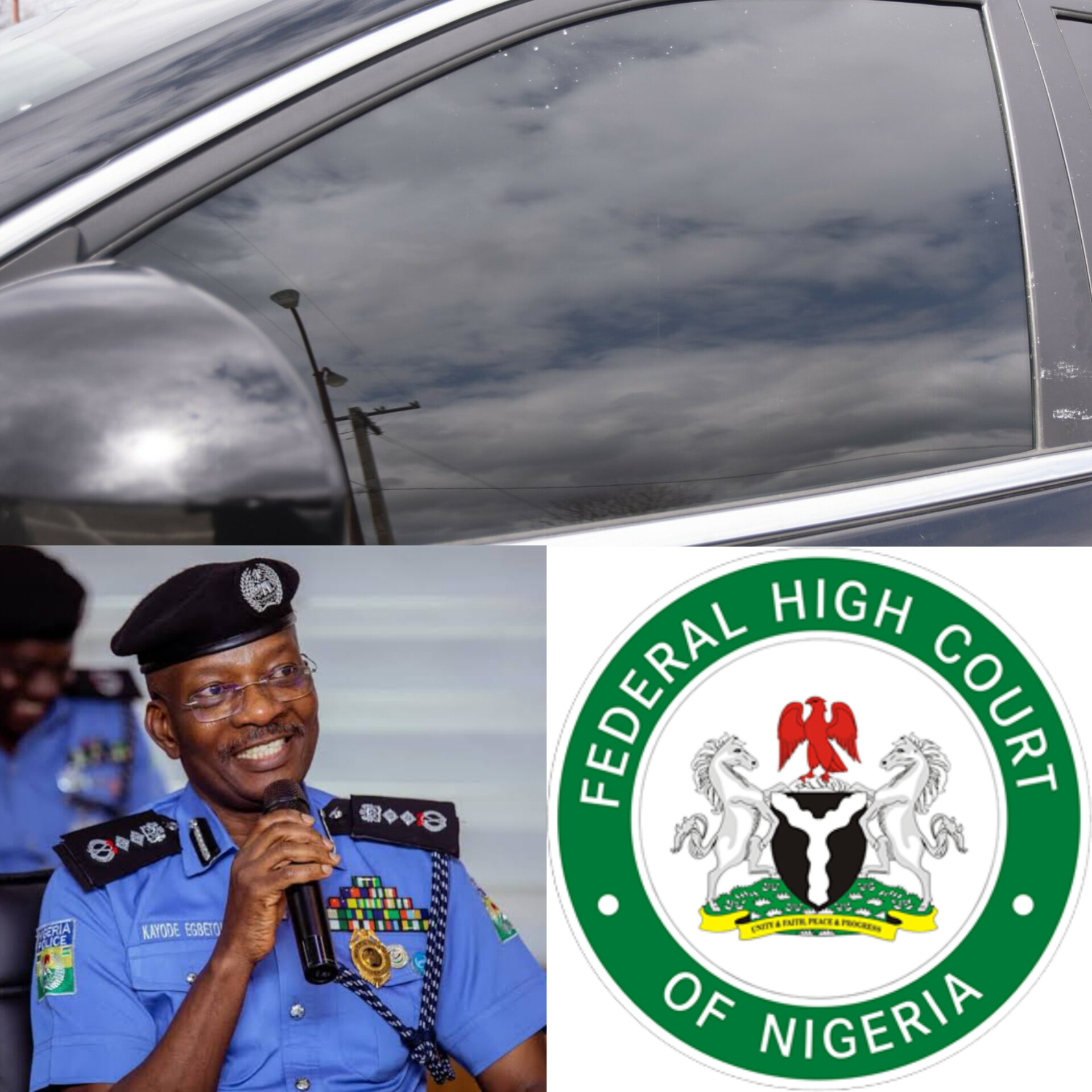
Landmark Ruling Eases Tension Between Motorists and Law Enforcement
In a landmark decision that will reshape the relationship between motorists and law enforcement in Nigeria, a Federal High Court has barred the Nigeria Police Force from enforcing the long-disputed tinted glass regulation.
Also Read: Police Crackdown on Tinted Vehicle Glasses in Abuja
The ruling, delivered on Wednesday, October 2, 2025, follows years of public complaints and heated confrontations between drivers and police officers over tinted vehicle permits. For many Nigerians, particularly commercial drivers and private car owners, the regulation had become synonymous with extortion, harassment, and prolonged legal confusion.
The Court’s Decision
The court held that the enforcement of tinted glass permits lacked proper legal backing under the current framework, describing police actions as “arbitrary” and “unconstitutional.” Justice S. A. Odugu, who presided over the case, ruled that no citizen should be subjected to harassment or intimidation on Nigerian roads under the guise of tinted glass enforcement until proper legislative clarity is established.
Motorists’ Reactions
The judgment sparked jubilation among motorists across major cities. In Lagos, commercial transport operators at Oshodi expressed relief, with one bus driver, Kunle Adeyemi, saying:
“Everyday na fight with police because of tinted glass permit wey nobody fit explain. Today, the court don free us from wahala.”
Private car owners in Abuja also welcomed the development, describing it as a victory for citizens who had long suffered at the hands of what they termed “roadside extortion.”
Police and FRSC Silent
As of press time, the Nigeria Police Force had yet to issue an official statement on whether it would appeal the ruling or comply immediately. The Federal Road Safety Corps (FRSC), which also partners in traffic enforcement, has maintained silence on the matter, though road users are demanding swift compliance.
Road Safety Experts Caution Drivers
While many celebrated the ruling, road safety experts urged motorists not to abuse the development. Engr. Tunde Bakare, a road traffic analyst, said:
“Yes, the court has barred police enforcement, but that does not mean drivers should turn their cars into blacked-out moving hazards. Safety comes first, visibility matters for accident prevention.”
Broader Implications
This ruling marks one of the few times the Nigerian judiciary has directly intervened in a policy affecting millions of motorists nationwide. It may also set a precedent for challenging other controversial road regulations.
However, observers warn that the judgment could create a temporary vacuum in road safety checks, especially in regions prone to criminal activity where tinted vehicles have been linked to kidnappings and robberies.
For now, Nigerian drivers can heave a sigh of relief, but the debate over balancing road safety with citizens’ rights is far from over.

